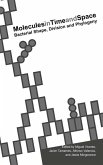Strategies of Bacterial Interaction with Eukaryotic Cells Tobias A. Oelschlaeger and Jorg Hacker 1. BENEFICIAL BACTERIAL-HOST INTERACTIONS Already during birth and soon thereafter mammals are colonized by bacte ria belonging to the resident microbial flora. Cutaneous and mucosal sur faces and the gastrointestinal tract are the areas which become colonized. These indigenous or autochthonous bacteria have a variety of beneficial effects on their hosts. They play a protective role by bacterial antagonism in fighting infections (Hoszowski and Truszczynski, 1997; Hentges, 1979). Pro duction of vitamin K is another essential contribution of the resident microbial flora to the health of the host (Hill, 1997). Even more important, studies with germ-free animals demonstrated the involvement of the microbial flora on the development of the immune system. Such animals have underdeveloped and relatively undifferentiated lymphoid tissues and low concentrations of serum immune globulins ( Cebra et at., 1998). They TOBIAS A. OELSCHLAEGER and JORG HACKER Institut filr Molekulare lnfektionsbiologie, Universitiit Wiirzburg, 97070 Wiirzburg, Germany. Corresponding author; Phone: (0)931-312150; FAX: (0)931-312578; E-mail: t.oelschlaeger@mail.uni-wuerzburg.de xxix Tobias A. Oelschlaeger and Jorg Hacker also show defects in specific immune responsiveness and in nonspecific resistance induced by endotoxin, which may account for their lowered resis tance. A more typical example of symbiotic interaction of bacteria with a host are bacteria like Ruminococcus in the gut of ruminants, essential for degradation of cellulose (Hobson, 1988). The closest benefical bacterial-host interactions are those of intracellular symbiotic bacteria and their host cells.








